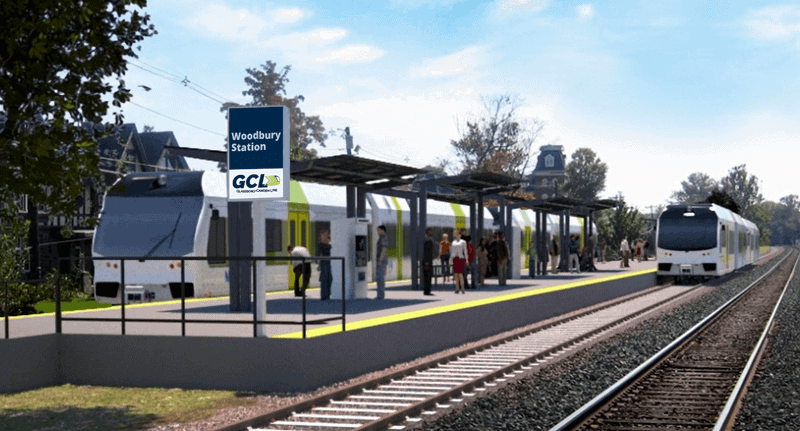

The proposed Glassboro-Camden Line (GCL), an 18-mile train run expected to go from downtown Camden and eventually connect with the Rowan University campus, has caused a major uproar in connected communities.
A concern for many residents includes the environmental impact: Will the added train cause pollution in the area?
Delaware River Port Authority (DRPA) CEO John Hanson said no, even with the planned train’s diesel engine.
“It’s very clean diesel,” he explained. “If you do the research, there are studies that say clean diesel trains can be cleaner than electric trains, depending upon how the electricity is manufactured.”
Requirement to look for alternative technologies as they still prefer to have clean electricity. According to Hanson, the technology is not there.
“The corridor that we’re going to be using through the conrail right of way doesn’t allow for a typical electric-type scheme, meaning that overhead catenary or third rail electric, there’s not enough room out there,” he added. “If technology becomes available, if a battery-operated or hybrid type scheme is available, we would use that. We will use the cleanest technology available with the least environmental impact, and the diesel that’s currently planned is very clean with very, very minor environmental impact.”
Because of the DRPA’s effort to make sure the GCL train is the cleanest option, the line has received support from local groups focused on environmental activism and sustainability.
“We’ve looked at the Glassboro-Camden rail line’s environmental impact statement to evaluate the project’s influence on geological, hydrological and biological resources and have come to the conclusion that the GCL’s impact on the communities along the route is minimal compared to the environmental and economic benefits to these towns,” said Sean Mohen, executive director of Tri-County.
Tri-County Sustainability (TCS) is the Sustainable Jersey regional hub for Burlington, Camden and Gloucester counties. It has actively supported the new Infrastructure Investment and Jobs Act, allocating $4.1 billion for public transportation in New Jersey.
According to Mohen, the still-unfinished line is the next big step for the region’s investment in mass transit.
“Although not fully electric on day one, the GCL design includes newer diesel technology, with integrated on-board electrical generators, and it’s scalable to incorporate innovation and new battery tech as it becomes available,” Mohen explained.
“This is a smart, incremental approach to meeting South Jersey’s mass transit needs,” he added, “and it will go a long way in keeping our recent college grads in our region. GCL is the next generation of travel for the next generation.”
More on the line, its benefits and the public outcry will be reported in the coming weeks. Mantua residents can now visit glassborocamdenline.com for information.









